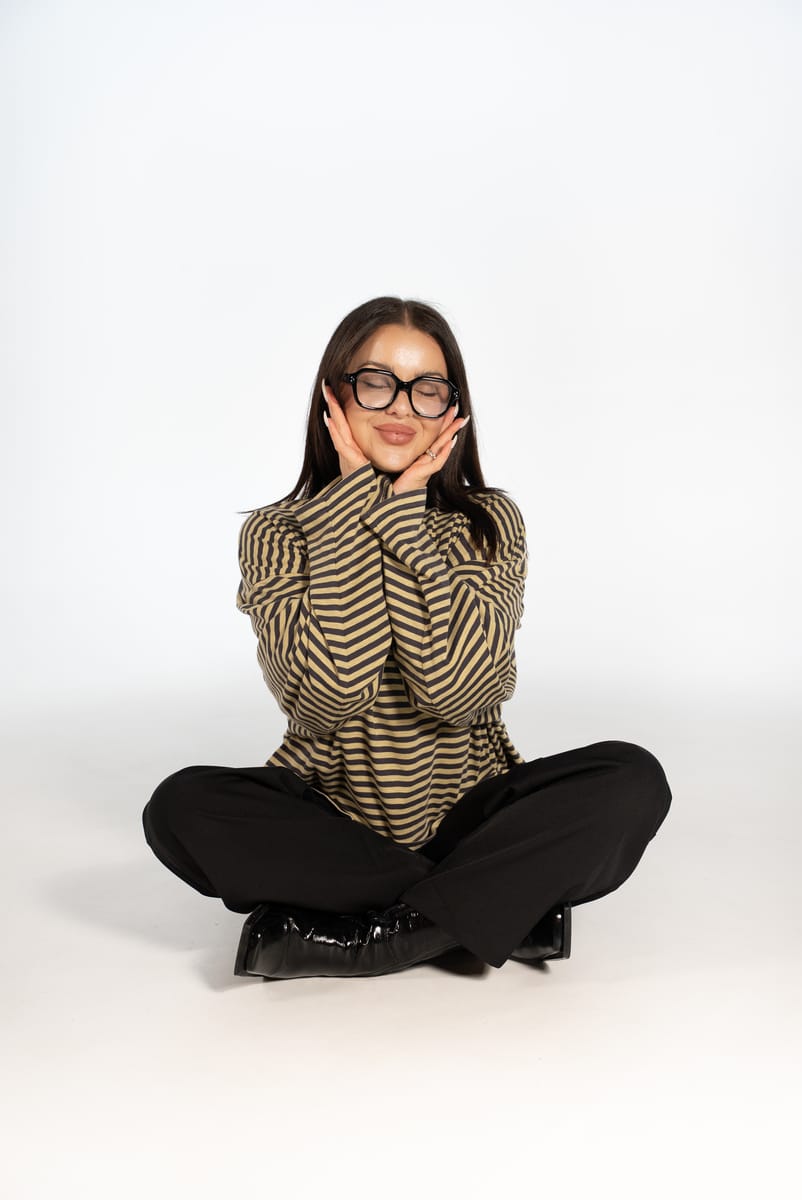
Moo Deng, the baby pygmy hippo, is the internet's new obsession, but her sudden fame comes with real concerns. For marketers, it's a reminder that viral content can easily cross the line into exploitation if we aren't mindful of the subject’s well-being.
Moo Deng is more than just a meme – and we should treat her as such.
In case you live under a rock, Moo Deng is a baby pygmy hippo. And she has become the internet’s latest hyper-fixation since her birth at Khao Kheow Open Zoo, Thailand.
But the 2-month-old's rapid rise to fame of the has had some problematic ramifications. And it's brought about the question--when it comes to internet culture, where is the line between virality and exploitation?
In the case of Moo Deng, whose name means 'bouncy pig,' everyone seems to want a piece of her.
The squishy baby is the newest star on the block. She's been featured in Sephora makeup tutorials, dozens of articles, and thousands of memes. Moo Deng even has her very own line of pants.
However, concerns have arisen surrounding Moo Deng's safety in recent weeks. As the craze seems to grow, zoo visitors have begun mistreating and harassing the hippo, throwing water and shells at her to wake her up or get her attention.
To add to that, more than 4,000 visitors have been coming to the zoo to see Moo Deng on weekdays, compared to 800 on a normal weekday. And that number swells to 10,000 on the weekends, according to Narongwit Chodchoi, the zoo’s director.
She’s become so popular, the zoo has had to limit public access to her enclosure.
Visitors get 5 minutes to see her, and then the next group comes through.
Let’s keep in mind, this is an infant animal. She has absolutely no understanding of her new-found internet fame, or why any of this is happening in the first place.
She’s literally just a baby.
It's clear that, when internet culture involves commodifying or commercialising viral sensations, it can become exploitative.
Often, when something goes so viral, the subject becomes a tool for profit. But things can quickly go badly. Especially when the focus remains on the profit and not the well-being or ethical treatment of the people or animals involved.
Brands have also started to use Moo Deng’s likeness in campaigns, commercialising her without prioritising her welfare. The zoo is now working on trademarking her image to prevent others profiting off her with no benefit to the zoo’s conservation efforts.
It’s a tricky business, turning an animal into a brand. We’ve seen it time after time in media and entertainment.
Tilikum, the orca at SeaWorld whose fame skyrocketed from the documentary Blackfish, is an example of such exploitation.
The documentary showcased the severe distress Tilikum experienced in captivity, gaining global attention. And while it shone a light on the ethical issues involving orcas and captivity, the public fascination with the story turned to sensationalism. Tilikum's well-being was largely ignored, further objectifying the orca.
Another example of this is Harambe the Gorilla (RIP). He was shot by a zookeeper after a young boy fell into his enclosure in a Cincinnati zoo in 2016.
His death became a viral sensation – photos of him have been shared over 5 billion times.
But the viral nature of the situation trivialised it.
Serious issues like animal ethics, conservation and zoo safety became memes and videos focused on humour.
These ignored the trauma of the incident and consequences for Harambe’s life or the zookeepers who experienced the incident.
This was a tragic-event-turned-meme-culture phenomenon. And it dehumanised the event, neglecting the seriousness of it all. And we see again how viral fame often overshadows the ethical treatment and well-being of the subjects involved.
That’s why, in all cases of rapid internet fame, animal or not, brands should seek to navigate meme culture without being exploitative.
You should especially avoid commercialising viral sensations like Moo Deng without considering their welfare.
In any case, brands must ensure that using someone’s image and likeness will in no way harm or detract from their care and safety. Ethical considerations, like how fame can affect people or animals, should come before profit.
-Sophie, Writer
Hear more on the YAP Podcast where we dive into Moo Deng’s viral fame.
